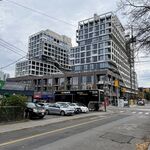MetroMan
Senior Member
This superbly researched article by John Lorinc takes you through Toronto's history and key decisions that have lead our once prosperous city -- that was once heading for greatness -- into the sludge of traffic gridlock, growing poverty ghettos and a massive structural deficit.
How Toronto Lost Its Groove - And why the rest of Canada should resist the temptation to cheer
It's an amazing read, but quite sobering. Some people would associate our journey with the growing pains of great cities like New York, London or Paris, but another option is available: Detroit.
What will it take to get back on the right track? What is the reality that we're facing? Discuss.
How Toronto Lost Its Groove - And why the rest of Canada should resist the temptation to cheer
It's an amazing read, but quite sobering. Some people would associate our journey with the growing pains of great cities like New York, London or Paris, but another option is available: Detroit.
What will it take to get back on the right track? What is the reality that we're facing? Discuss.




